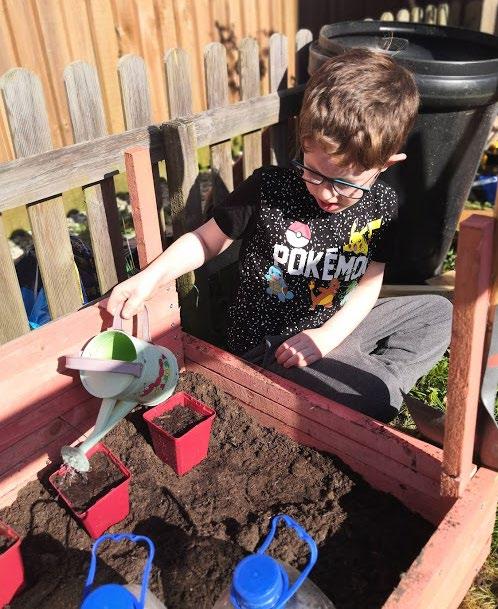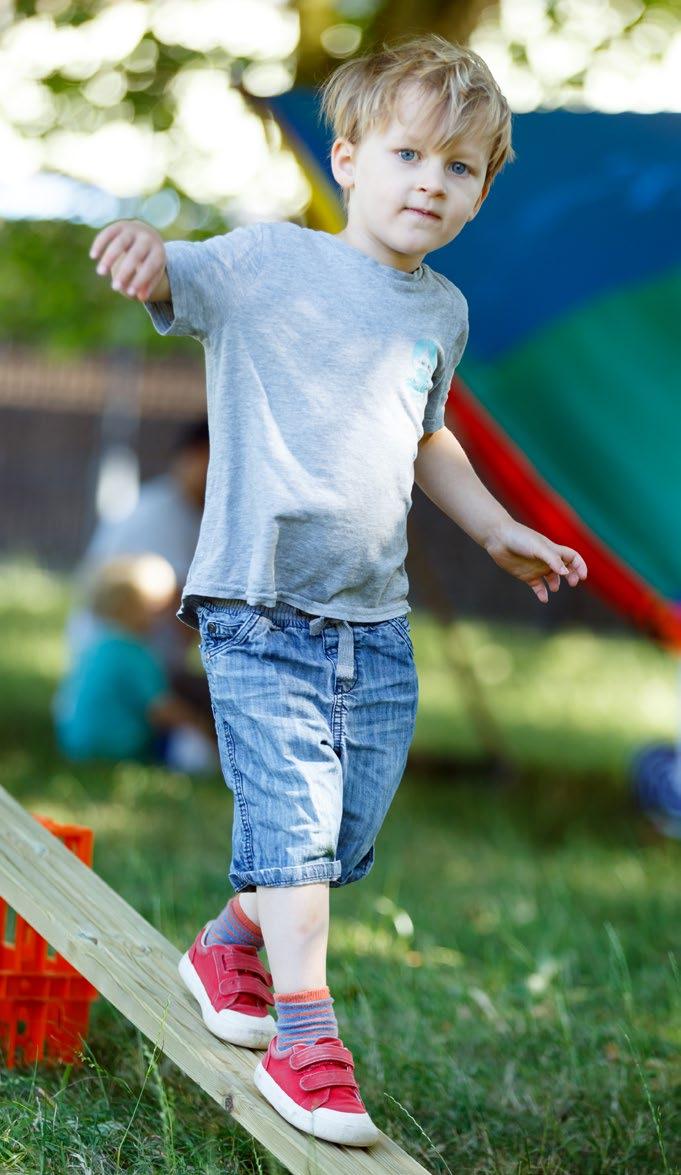
5 minute read
Workforce development
Shared Values for the play workforce in Wrexham
The Statutory Guidance, Wales – a Play Friendly Country (2014) clearly defines the play workforce as ‘anyone employed whose role has an impact on children playing – those who may either directly facilitate their play, design for playing or those with the power to give permission for children to play, or not’. It can be challenging to influence this incredibly diverse group of people and local authorities have undertaken a range of development work, facilitated conferences and provided information to ensure that the play workforce really understands their role in securing play sufficiency.
Advertisement
Mel Kearsley from Wrexham County Borough Council’s Play Development Team updates us on a long-term piece of work to develop a set of principles, or ‘shared values’, for the play workforce in Wrexham.
Background Whilst completing the local authority’s second Play Sufficiency Assessment in 2016 it became clear that the way in which people think about children, their capabilities and childhood in general, varied and had a profound impact on their approach to working with children. It is also likely that professional development opportunities based on different understandings of childhood will promote significantly different messages to practitioners. As a consequence, Wrexham’s 2016-17 Play Sufficiency Action Plan included an action to: Develop and agree a set of guiding principles that can be used to underpin professional development opportunities for the play workforce.
Development process Starting in 2017, the Play Development Team facilitated five workshops which encouraged professionals to explore the way in which they thought about children, their childhoods and their play. Forty-two professionals attended – from strategic directors, to service managers to front line staff. The workshops promoted positive discussions as most people involved recognised that there needed to be an improved focus on children enjoying their childhoods. But, the discussions also revealed that practitioners felt constrained by an outcome driven accountability culture and disproportionate health and safety concerns.
A small steering group was formed to collate and sort the comments gathered at the workshops. This group included representatives from playwork, youth work, early years, childcare, education psychology, public health, higher education and the business community. Following much discussion, the steering group developed a set of eight draft values which were sent out for consultation with all those that attended the initial workshops.
In addition, an online survey was set up to consult practitioners on the draft values. In total 76 people responded to the survey, including practitioners who work directly with children and those that do not, practitioners who are also parents or grandparents, representatives of schools, students, childcare and social workers. An additional workshop, based on the survey, was also facilitated with 16 young people from Young Wrexham (youth parliament).
Following feedback, the steering group acknowledged the need to clarify the intention of the shared values and therefore developed an introduction which emphasises the need for balance between the concerns, interests and rights of both children and adults. The steering group felt that high-level support for the shared values could go some way to addressing these concerns and further inform policy and practice. support for practitioners to adopt this positive way of thinking about children and their childhoods. The Council Executive Board approved them and agreed that the values would be the mechanism for implementing the Wrexham County Borough Council Play Pledge in July 2019.
Two workshops have taken place with over 40 members of the Wrexham Flying Start team to further embed the values into their way of working.
Launch The values – Shared Values for the Play Workforce in Wrexham – were formally launched at a Valuing Childhood conference in Wrexham in February 2020. Over 60 professionals from the play workforce attended the event and the feedback was extremely positive. Martin King-Sheard, Workforce Development Officer for Play Wales, who attended the event said:
‘This piece of work is a fantastic example of upskilling the wider play workforce. It demonstrates that culture change can take time but with consistent focus led by the Play Development Team we can get all stakeholders involved with the play sufficiency duty to think innovatively and differently about how to improve opportunities for playing across a local authority.’
Playwork and coronavirus – just keep learning!
During these difficult times many playworkers will not be able to continue working face to face with children while play development staff and play sufficiency leads may be working from home. Playwork learners will have found themselves with courses postponed. So, we want to encourage you to take advantage of this time to build or refresh your playwork knowledge.
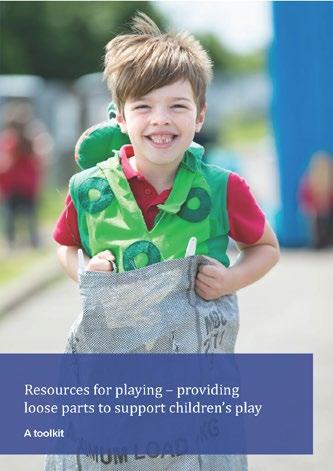
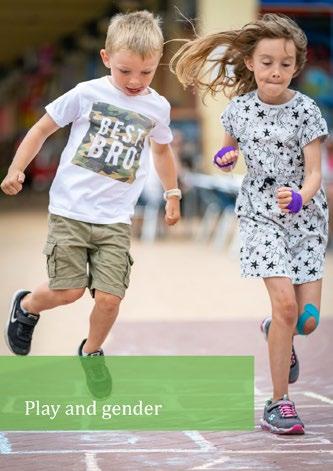
Reading and staying up to date with current practice is something we often struggle to find time for but continuing professional development (CPD) is often highlighted as a priority for practising playworkers and their employers. Fortunately, the internet is a fantastic resource for our CPD with online forums, YouTube channels and websites dedicated to building our knowledge around play and playwork. Here is an overview of some of the resources available on Play Wales’ website to help with your playwork learning.
Top tips Short, informative guides on a range of useful subjects around play and playwork. A good place to start – Top Tips: Continuing Professional Development.
Toolkits Intended as complete guides with information and practical tools and templates to support improving play for children in a range of contexts. We have toolkits covering developing and managing play spaces, using

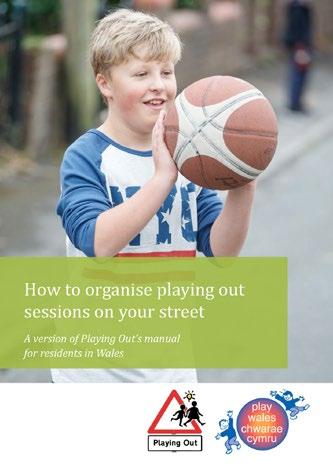
loose parts, making use of school grounds out of hours, accessible play spaces, working on gypsy and traveller sites and developing street play projects.
Information sheets We now have a large library of relevant info sheets on a range of subjects and these are regularly updated. Check out the back catalogue and look out for some of the newest information sheets: Play and gender, The Welsh Play Sufficiency Duty and the roles of playworkers and Older children play too.
New publications We are in the process of producing new playwork publications that will be available in the coming weeks and months. The focus of these publications is to share some of the content from our highly regarded training materials in four downloadable playwork resources. There will be two volumes covering playwork knowledge: Childhood, play and the Playwork Principles and Practising playwork – and two volumes for running settings: Managing staff and Managing playwork projects.

